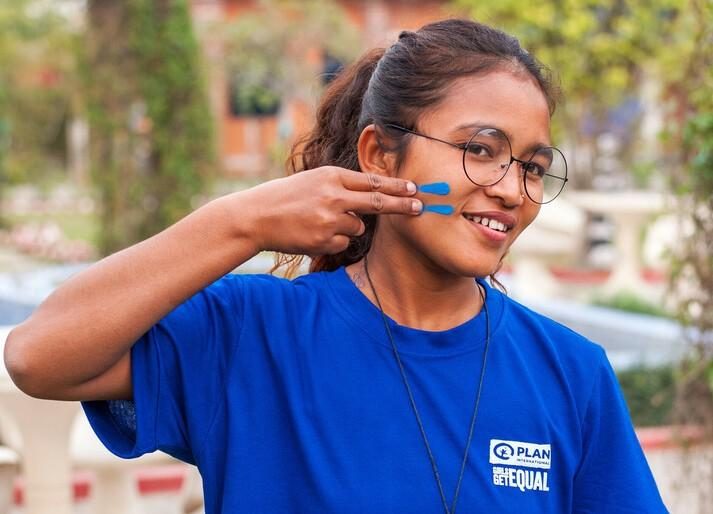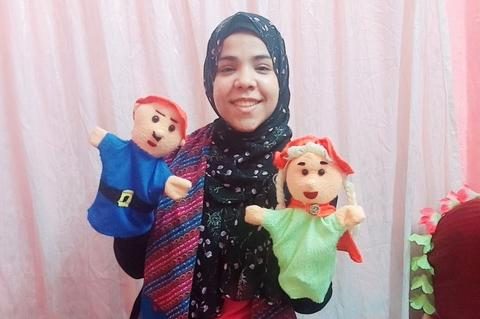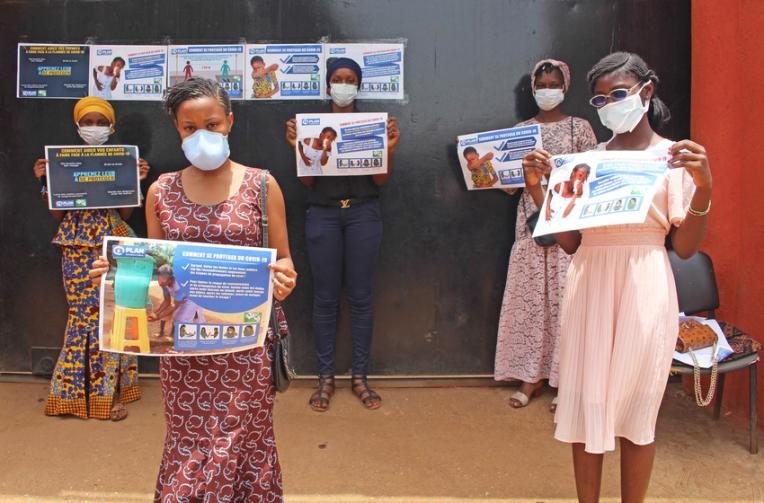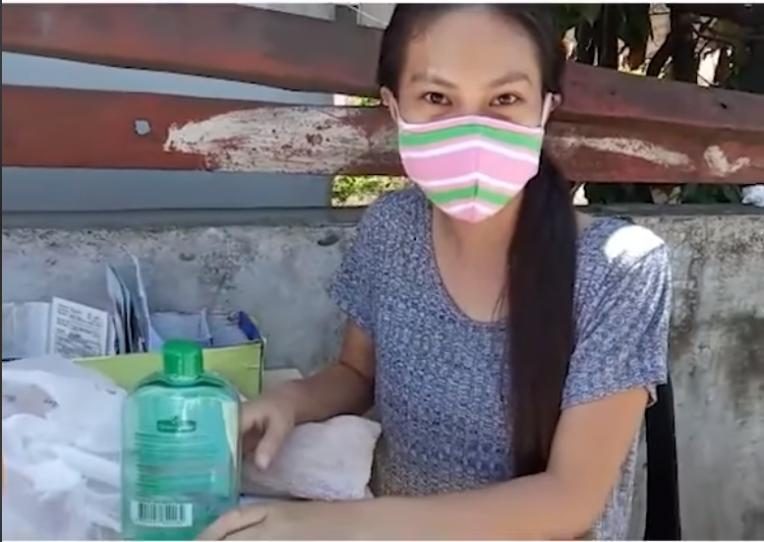22 JULY 2020
The world has been turned upside down by the COVID-19 crisis but in these unprecedented times, we have once again been shown who runs the world… girls!
A blog by campaigns officer Khadijah Turner and Advocacy, Brand Activism and Campaigns Officer, Larissa Kennedy.

Prior to COVID-19, girls and young women were already redefining leadership and striving for social and gender justice in their own ways. Now, during the pandemic girls have been utilising their skills as motivators of change and taking the lead in ways that empower and help others.
Despite girls and young women being hit hardest by COVID-19 they have also shown themselves to be leaders of recovery.
Here are just a few examples of girls around the world raising their voice and leading their communities during the crisis.
Using entertainment to raise awareness
COVID-19 has been the subject matter for many young people’s creative talents. For Basma, 21, a member of Plan International’s Youth Advisory Panel in Egypt, this has been through puppetry.

A prominent community developer and member of the art for development group, Karakovia, quarantine regulations hit Basma hard.
Quickly searching the internet for videos on how to make a puppet theatre, Basma took to social media to let her puppets do the talking! Through her puppet shows Basma is able to share information on COVID-19 which is fun and easy to understand. Now a weekly segment on her Facebook page, the positive response has encouraged Basma to use her platform to also feature topics such as early marriage and female genital mutilation.
Protecting young LGBTIQ+ people in dangerous lockdown situations
Social distancing and isolation orders may keep us safe from COVID-19 but it also places some young people in dangerous situations.
Mexican youth activist, Sofia Jimenez Poire realised that while many LGBTQI+ young people in quarantine are safe from the virus, they are exposed to the potential violence of family members who do not accept their sexual orientation and/or gender identity.
In her role as coordinator of Balance’s Sexual Identity programme, Sofia has been supporting LGBTQI+ young people in situations where they face stigma, abuse and violence.
Tackling COVID-19 and gender-based violence
Not only are the Guinea Girl Leaders Club supplying hygiene kits and information on keeping safe during the pandemic to their communities, they are also fighting gender based violence.

Recognising that misinformation can fuel panic, Fanta and her peers have taken to social media to create a platform of resources on COVID-19 that is accessible and easy to understand.
It was important to Fanta that they use the platform to also share the secondary gendered impacts of the pandemic such as the increased risk of domestic violence and child marriage. During the pandemic Fanta has also been working to stop early child marriages due to take place in her community.
“No more than two weeks ago we stopped a marriage that was due to take place in 24 hours,” she said.
“Sometimes we are criticised […] but there are more people who encourage us than those who are against us.”
Supporting girls who face the burden of domestic duties during lockdown
Quarantine orders have closed schools and activities forced many activities to stop. Whilst this is to ensure the safety of children and teachers, for some this also means the increased burden of unpaid and domestic work. This is the case for many girls and young women in Girls Get Equal leader Raquel’s community in the Philippines.

Noting the gendered impacts of the pandemic, Raquel has been using her platform as a Youth Council member to frequently meet with girls in her community and offer support for their needs.
“As a girl leader I want to show girls and young women that our capabilities are unlimited,” says Racquel, who also serves her community on the frontline as a checkpoint officer, monitoring people entering and exiting the town whilst keeping herself safe.
She is also conducting a survey to find out how women and children are being affected by the lockdown that has been enforced in the Philippines.
“We can help in small or big ways. Our gender identity is not a hindrance to helping our country deal with COVID-19. Girl or boy, youth or adult, if you have the dedication, you can help.”
Keeping markets safe for the community
Around 821 million people are short of food and this has only been exacerbated by the effects of COVID-19. This was a point of concern for Tomisin Adefare the young founder of agricultural development organization Topak Agro Hub. Fearing the gradual increase of COVID-19 spreading throughout markets in Ibadan, Nigeria, Tomisin mobilised local NGOs and friends to take action.
With the community’s limited internet access, Tomisin raised awareness about proper handwashing techniques, as well as distributing gloves and face masks and donating tap buckets and sanitiser. The group also provided signs on how to stay safe written in English and other local languages in the Bodija and Sango markets, to keep people safe and keep the food supply running smoothly.
It’s clear that girls have the energy, creativity and leadership skills required to build the ‘new normal’ after the COVID-19 pandemic is over. A new world with new rules, one that listens and responds to girls’ and their unique needs.


